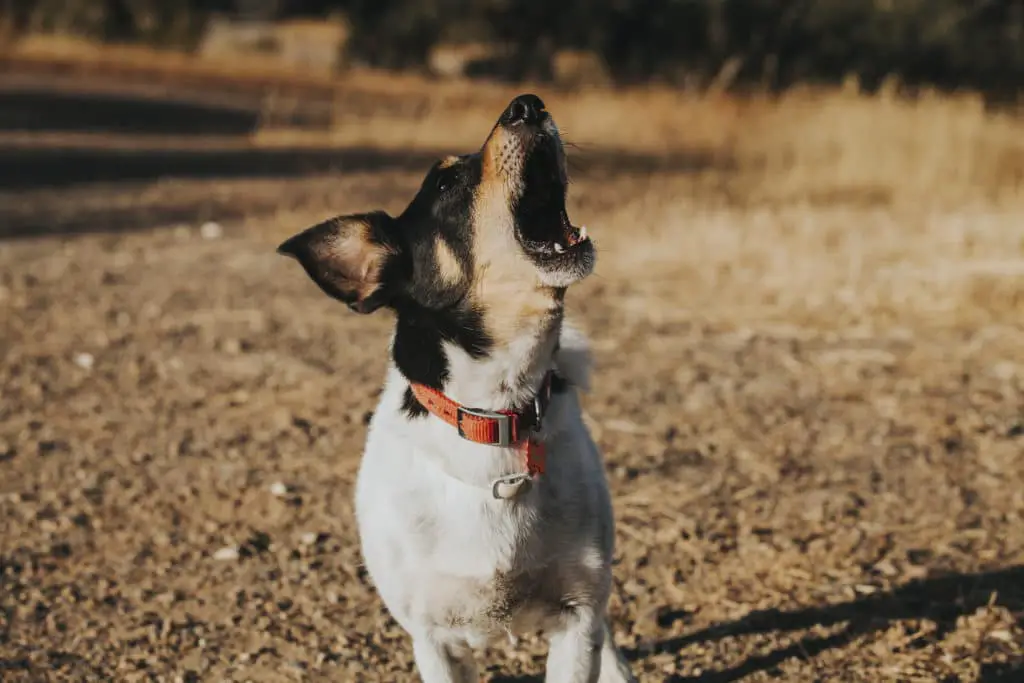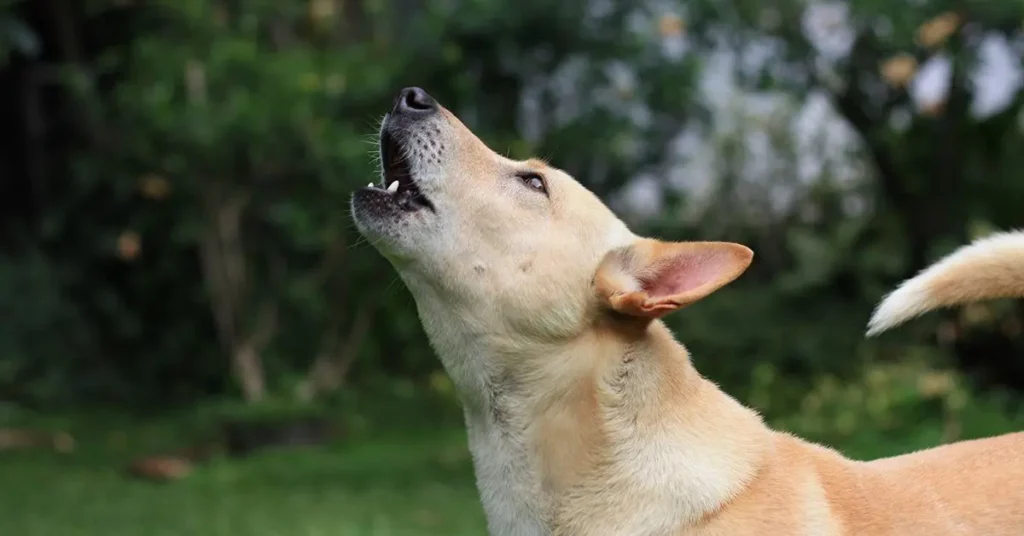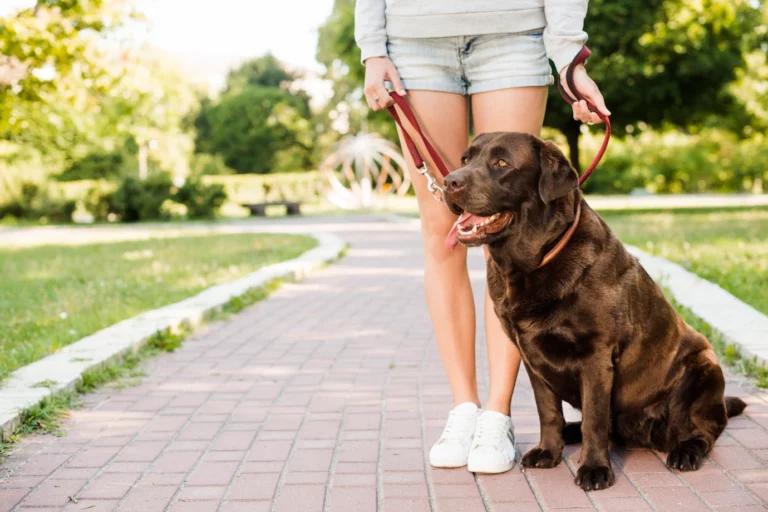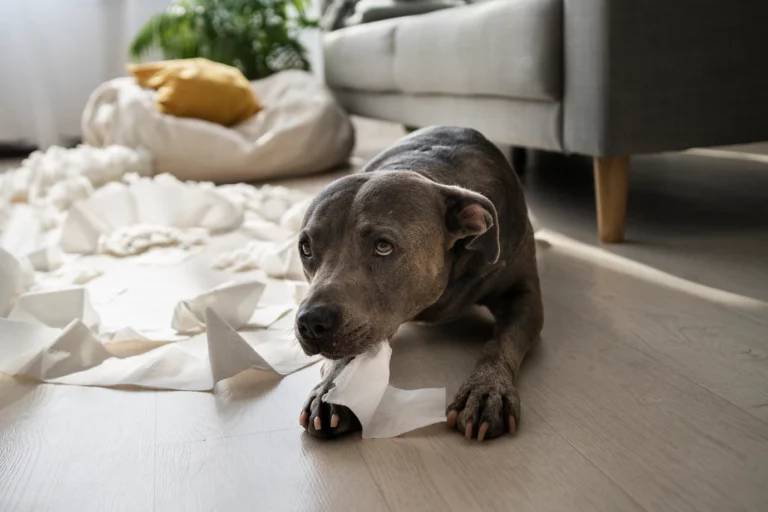Understanding and Addressing Your Dog’s Nighttime Howling
Have you ever been jolted awake by your dog’s howling in the middle of the night and wondered what could be causing such behavior? You’re not alone. Many dog owners experience this puzzling issue and may feel confused or concerned.
Nighttime howling can disrupt your dog’s sleep as well as your own, which makes it crucial to understand the reasons behind this behavior and find appropriate solutions to ensure a peaceful night for both you and your furry friend.
In this blog post, we will explore the causes of nighttime howling, offer practical tips to address it, and answer frequently asked questions to help you gain a comprehensive understanding of this behavior.
Read on to find out how you can help your canine companion feel more at ease during the night and enjoy a well-deserved restful sleep.
Look at Howling in Dogs: A Natural Instinct
Before diving into the causes of nighttime howling, it’s essential to recognize that howling is an innate behavior in dogs. As descendants of wolves, domestic dogs have inherited some of their ancestors’ behavioral traits, and howling is one of them. In the wild, wolves use howling as a form of communication to stay connected with their pack members, convey emotions, or alert others about potential threats.
Howling as an Ancient Form of Communication
Howling is a powerful and effective way for canines to communicate over long distances. It is often used to share important information, such as the location of food, the presence of predators, or the need for assistance. This ability to communicate has been essential for the survival of wolves in the wild, and domestic dogs have retained this instinct.
Dogs as Descendants of Wolves
Domestic dogs have a shared ancestry with wolves, which is why they exhibit similar behaviors. Though selective breeding and domestication have resulted in significant differences between wolves and dogs, some primal instincts and behaviors, like howling, are still prevalent among our furry friends.
Reasons for Howling in the Wild
In the wild, wolves use howling for various purposes, such as:
- Reuniting with pack members
- Announcing their presence to neighboring packs
- Warning of potential dangers or predators
- Expressing emotions like joy, frustration, or excitement
Understanding howling as a natural and instinctual behavior in dogs can help us approach the issue of nighttime howling with empathy and insight. In the next section, we’ll discuss possible reasons why your dog may be howling at night and how to address them effectively.

7 Possible Causes of Nighttime Howling in Dogs
Determining the reason behind your dog’s nighttime howling is the first step to addressing the issue effectively. There can be several causes for this behavior, and it’s crucial to identify the root of the problem to find the best solution for your dog. Here are some common reasons why dogs howl at night:
1. Separation Anxiety
Some dogs experience separation anxiety when they’re apart from their owner or family members. This anxiety can lead to nighttime howling as your dog tries to communicate their distress and seek comfort. Dogs with separation anxiety may also display other signs, such as destructive behavior, excessive barking, or accidents in the house.
2. Boredom and Lack of Stimulation
Dogs need both physical and mental stimulation to stay healthy and content. If your dog isn’t getting enough exercise and mental engagement during the day, they might become bored and resort to howling at night. This behavior could be your dog’s way of releasing pent-up energy or seeking attention.
3. Distress or Discomfort
Physical discomfort, pain, or illness can cause a dog to howl at night. Your dog might be trying to communicate their distress or discomfort to you. In such cases, it’s essential to consult a veterinarian to identify any underlying health issues and provide appropriate treatment.
4. Seeking Attention
Dogs sometimes howl at night to get their owner’s attention. If you’ve unintentionally reinforced this behavior by responding to their howls, your dog may continue howling to receive the attention they crave. It’s crucial to avoid reinforcing this behavior and focus on addressing the root cause.
5. Territorial Behavior and Protection Instincts
Dogs are instinctually protective of their territory and family members. They might howl at night in response to perceived threats or intruders, like wildlife, other dogs, or even unfamiliar sounds. This form of howling can serve as a warning to potential intruders or an alert to you as their owner.
6. Environmental Triggers
Certain sounds or events in your dog’s environment can trigger nighttime howling. Examples include sirens, other dogs howling, fireworks, or thunderstorms. Your dog may howl in response to these stimuli, either in an attempt to communicate with other dogs or as a reaction to fear or anxiety.
7. Age-Related Cognitive Decline
Senior dogs may experience cognitive decline, leading to confusion and disorientation. This age-related change can result in nighttime howling, as your dog might feel anxious, scared, or restless due to their altered cognitive state.
Identifying the cause of your dog’s nighttime howling will help you tailor your approach to address the issue effectively. In the next section, we’ll discuss solutions to manage and prevent your dog’s nighttime howling behavior.

How to Address Your Dog’s Nighttime Howling
Once you have identified the possible cause of your dog’s nighttime howling, it’s time to implement appropriate solutions to help both you and your canine companion enjoy peaceful, restful nights. Here are some strategies to address your dog’s nighttime howling:
1. Rule Out Medical Issues
If you suspect your dog’s howling is related to pain, discomfort, or illness, consult with your veterinarian to rule out any underlying medical issues. Your vet can perform a thorough examination, recommend any necessary tests, and provide appropriate treatment for your dog’s specific health concerns.
2. Create a Comfortable Sleep Environment
Ensure your dog has a cozy, quiet, and secure sleeping area. This may include a comfortable bed, blankets, and toys. Providing a consistent, safe sleep environment can help reduce anxiety and discourage nighttime howling. If your dog is howling due to environmental triggers, try using white noise machines, blackout curtains, or calming pheromone diffusers to minimize disturbances.
3. Ensure Enough Physical and Mental Stimulation
Make sure your dog receives adequate exercise and mental engagement throughout the day. Daily walks, play sessions, and interactive toys can help keep your dog physically and mentally stimulated, reducing the chances of boredom-related nighttime howling.
4. Implement a Consistent Routine
Establishing a consistent daily routine can help your dog feel more secure and less anxious. This includes regular feeding times, walks, play sessions, and bedtime rituals. A predictable routine can help minimize anxiety-related howling, especially in dogs with separation anxiety.
5. Practice Training and Behavior Modification Techniques
Use positive reinforcement training techniques to address attention-seeking or anxiety-related howling. This may involve rewarding your dog for being quiet or using desensitization and counter-conditioning techniques to help them feel more comfortable with nighttime triggers. It’s essential to be patient and consistent in your training efforts.
6. Seek Professional Help if Necessary
If your dog’s nighttime howling persists despite your efforts, consider seeking the help of a professional dog behaviorist or trainer. They can provide personalized guidance and support to address your dog’s specific needs and help you develop a customized plan to manage and prevent nighttime howling.
By implementing these strategies, you can work towards addressing the underlying cause of your dog’s nighttime howling and help them feel more at ease, ensuring a good night’s sleep for both of you.

How to Prevent Nighttime Howling in Puppies
If you have a young puppy, it’s essential to establish healthy habits early on to prevent nighttime howling from becoming a long-term issue. Puppies can be more susceptible to nighttime howling due to factors like anxiety, a lack of routine, or insufficient stimulation. Here are some tips for preventing nighttime howling in puppies:
1. Importance of Early Socialization and Training
Start socializing and training your puppy from an early age. Exposing them to various environments, people, and other animals in a controlled and positive manner will help them feel more comfortable and confident as they grow. Teaching your puppy basic obedience commands and manners can also help set the foundation for well-behaved nights.
2. Crate Training and Creating a Comfortable Sleep Space
Crate training can be an effective tool to help your puppy feel secure and establish a consistent sleep environment. Create a comfortable and inviting crate space with soft bedding and toys, and gradually introduce your puppy to the crate using positive reinforcement techniques. This will help them associate the crate with positive experiences and view it as a safe haven during the night.
3. Building Confidence and Independence in Puppies
Encourage your puppy to develop independence by gradually increasing the amount of time they spend alone or away from you during the day. This can help prevent separation anxiety and reduce the likelihood of nighttime howling due to stress or fear. Remember to provide ample mental and physical stimulation during their awake hours to ensure they’re tired and content when bedtime arrives.
By focusing on early socialization, training, and building your puppy’s confidence, you can set the stage for peaceful nights and reduce the risk of nighttime howling as your dog grows. Be patient and consistent in your efforts to create a strong foundation for your puppy’s well-being and your mutual happiness.
The Impact of Howling on Your Dog’s Well-being
Nighttime howling not only disrupts your sleep but can also have adverse effects on your dog’s overall well-being. It’s essential to address this behavior to ensure that your canine companion stays happy and healthy. Here’s a closer look at the impact of howling on your dog’s well-being:
Chronic Stress and Anxiety
Frequent nighttime howling can be an indicator of chronic stress or anxiety in your dog. Chronic stress can negatively impact your dog’s immune system, making them more susceptible to illness and reducing their overall quality of life. Addressing the root cause of your dog’s anxiety is essential for their long-term health and happiness.
Sleep Disruptions and Consequences on Overall Health
Just like humans, dogs require sufficient sleep to maintain their physical and mental health. Nighttime howling can disrupt your dog’s sleep cycle, leading to fatigue, irritability, and weakened immune function. Ensuring that your dog has a consistent sleep routine and comfortable environment can help promote better sleep and overall well-being.
Importance of Addressing the Root Cause
It’s crucial to identify and address the underlying cause of your dog’s nighttime howling, whether it’s anxiety, boredom, or a medical issue. By doing so, you can improve your dog’s quality of life and strengthen the bond between you and your furry friend. Don’t hesitate to seek professional help if you’re struggling to manage your dog’s nighttime howling, as a qualified trainer or behaviorist can provide valuable guidance and support.
Frequently Asked Questions
Can certain breeds of dogs be more prone to howling at night?
While howling is a natural instinct in all dogs, some breeds, like Huskies, Alaskan Malamutes, and Beagles, may be more prone to howling due to their ancestry and breed-specific traits.
Does using a bark collar help with nighttime howling?
Bark collars may help with excessive barking but aren’t the most effective solution for howling. Addressing the underlying cause and using positive reinforcement training techniques are more suitable and humane ways to manage nighttime howling.
Can my dog’s diet affect their nighttime howling behavior?
Diet can play a role in your dog’s overall health and behavior, including howling. Ensure your dog receives a balanced and nutritious diet and consult with your vet if you suspect diet may be contributing to nighttime howling.
Are there any calming supplements or medications that can help with nighttime howling?
In some cases, calming supplements or prescribed medications can help manage anxiety or stress-related nighttime howling. Consult with your veterinarian before using any supplements or medications for your dog’s howling issues.
How long does it take to resolve my dog’s nighttime howling?
The duration to resolve nighttime howling depends on the underlying cause, consistency in implementing solutions, and your dog’s individual response to training and interventions. Patience and persistence are key to helping your dog overcome this behavior.
Final Thoughts
Addressing your dog’s nighttime howling is essential for their overall well-being and your mutual happiness. By understanding the causes, implementing appropriate solutions, and providing a supportive environment, you can help your canine companion enjoy peaceful, restful nights and maintain their physical and emotional health. Remember, patience and persistence are key to ensuring lasting positive change for your beloved pet.






